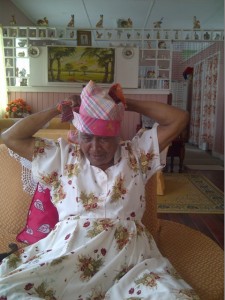Eighty-three-year-old Ameena Ishmail’s story is one of endurance through hardship on tough sugar estates, and developing resilience to face up to others in a society where women were not bestowed with the recognition they deserved.
In an interview with Guyana Times Sunday Magazine, Ameena, born August 1930, disclosed that she could not afford to attend school because her family was very poor, and she had to work in the “backdam” with her mother from just 12 years old.




